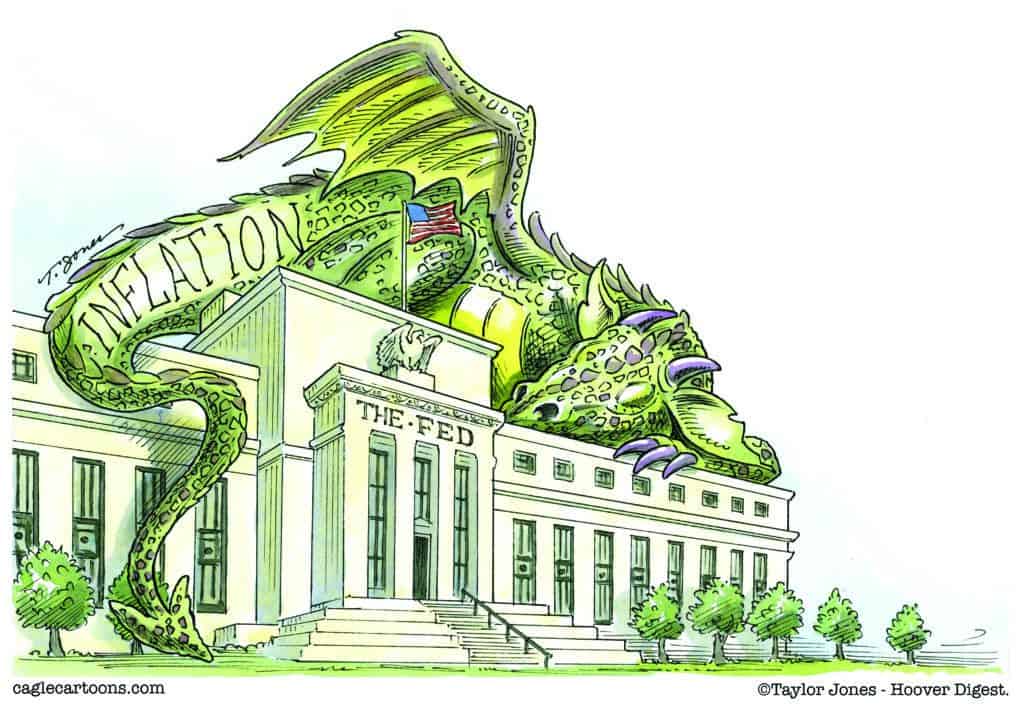
By Fred Baser
Editor’s note: Fred Baser of Bristol is a Vermont Housing Finance Agency commissioner. He is a member of the District 9 Act 250 Commission and an Addison County Home Health board member. He was a Vermont state legislator and small business owner.
It seems odd going about the activities of daily life, albeit with a mask on, while our country is undergoing an economic revolution. The Treasury has injected over $3.5 trillion, and the Federal Reserve is prepared to loan or buy loans up to $4 trillion (according to The Economist) to combat the financial consequences of the Covid-19 pandemic. More dollars are likely to be raised in the coming weeks. To put this in perspective, the entire federal budget for 2019 was about $4.45 trillion. These steps and others are unprecedented as the Fed and government deal with the economic fallout created by a non-economic factor, the Covid-19 pandemic. What do these actions mean for the future and what are the financial risks?
The steps taken by our financial policymakers that are the backdrop of the financial revolution include:
1. The Treasury borrowing money at an unprecedented pace.
2. The Federal Reserve, with the Treasury’s help, printing many billions of new dollars.
3. A 0% interest rate policy, allowing borrowers to have access to cheap money.
4. The Fed rescuing the bond market (don’t hear much about this one) by buying corporate and nonprofit entities’ debt. Nonprofit hospitals, Apple, AT&T, and Coke are just a few entities that now have the Treasury as their lender (according to The Economist).
5. A significant pass-through of dollars to states to help them cope with their Covid issues (Vermont has received $1.25 billion to date).
This means a huge deficit, projected to be at least $3.7 trillion for 2021 according to the Congressional Budget Office (2020’s deficit was $1.1 trillion). With 0 interest on loans, money is cheap for borrowers, but too much borrowing could lead to uncomfortable consequences.
The Fed and Treasury have put their fingers in the dike, by backing business when the bond market showed signs of weakness. Now 14% of all America’s public debt is backed by the government (according to the Government Accountability Office). Having printed so many new dollars, higher inflation is a possibility, as more dollars chase the same amount of goods and services. States have also exercised authority by coming out with rules that guide people’s actions.
What do these unprecedented economic actions mean for the future? Simply put, more government in our lives.
The Baby Boom, laissez-faire era of Milton Friedman’s capitalism is ending. Government has, and I suspect will continue to, underwrite business of all types and set policy to bolster parts of society that have been deeply affected by the pandemic. Government action on health care, day care, and higher education, is much more likely, post pandemic.
Capitalism will bend, as we deal with new economic realities, but not break. There is much historic precedent to suggest this will be the case. Capitalism has proven to be a very resilient, adaptive, and effective economic system.
To encourage strong economic activity, the Fed will continue to press for a long period of low, maybe even negative interest rates. Strong economic growth plus low inflation will reduce (but not eliminate) the need to raise tax rates at the federal level.
What can upset the Fed’s and Treasury’s economic actions? Some major risks include: tepid economic growth; a higher rate of inflation; the world losing confidence in our Treasury bonds (currently the world’s safest investment); the pandemic lasting longer than current expectations; and social unrest caused by people who don’t approve of more government involvement in their lives. None of these are, what I would term, remote.
What are the consequences for Vermont and other states? The $1.25 billion from the CARES Act has saved our bacon. In Vermont it has been used to rescue many valuable resources and Vermont has lost less tax revenue thanks to this federal help. However, we are likely to need continued federal assistance to limit program cuts and higher state taxes in the future.
The financial revolution we are in the midst of has impacted all Americans directly or indirectly, and in most incidents in a positive way. Most citizens are not aware of the scale of the financial actions taken to date, or what these actions might lead to in the future. What Americans do understand is that their dollars are continuing to buy goods and services in the marketplace and believe that the government will save them from financial hardships. Many businesses may have these same expectations.
Is this good? Ah, only time will tell.




